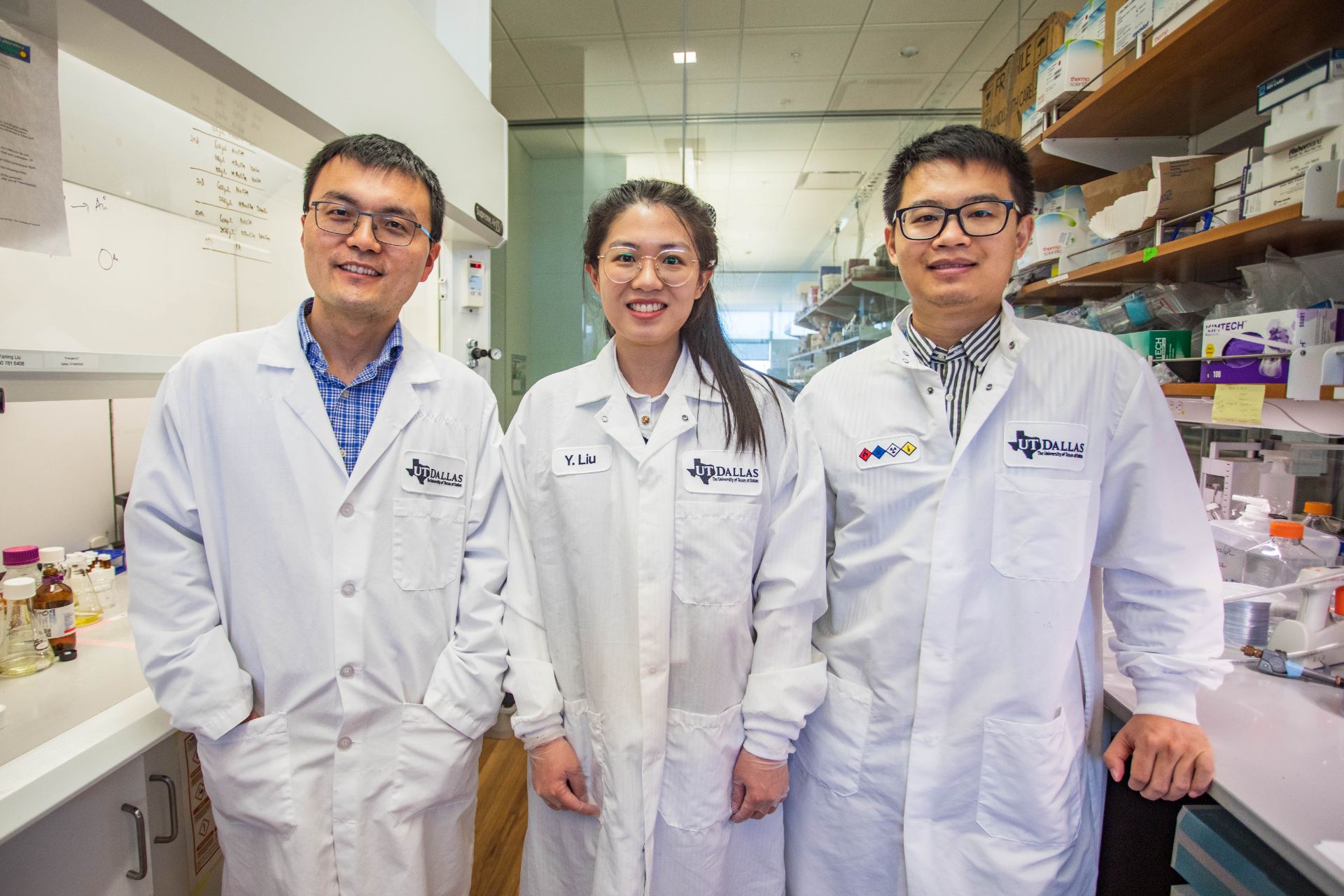
From left: Dr. Zhengpeng Qin, Dr. Yaning Liu and Dr. Haihang Ye
Engineers’ Rapid Virus Test Raises Bar for Detection
UT Dallas researchers have developed a rapid test for viruses that can deliver results as accurate as lab tests within 30 minutes.
Dr. Zhenpeng Qin, associate professor of mechanical engineering, and Fellow, Eugene McDermott Professor, described the method, called DIgitAl plasMONic nanobubble Detection (DIAMOND), March 30, 2022, in Nature Communications. Qin and his team in the Erik Jonsson School of Engineering and Computer Science have launched a company, Avsana Labs, to commercialize the technology.
While the current study focused on respiratory syncytial virus (RSV), Qin said the technology can be applied to other viruses.
The technology is 150 times more accurate than traditional rapid tests and matches the accuracy of polymerase chain reaction (PCR) tests. The new strategy paves the way for much faster and less expensive tests than PCR tests.
DIAMOND involves attaching gold nanoparticles to antibodies against the virus being tested. These combination molecules are then mixed with a patient sample from a nasal swab. If the sample contains a virus, the antibodies labeled with gold nanoparticles will bind with proteins on the virus’s surface.
The researchers use a syringe to pump the sample into a tube called a microchannel. As the liquid flows through the microchannel, it passes through the light of two lasers.
The first laser activates the gold nanoparticles, which absorb the laser’s energy and expand. If the expansion is strong enough, the nanoparticle will boil the surrounding water, generating vapor bubbles. Large nanobubbles signal the presence of a virus.
– Kim Horner


